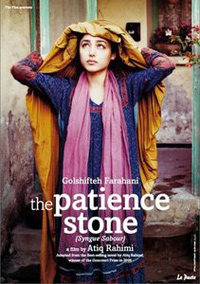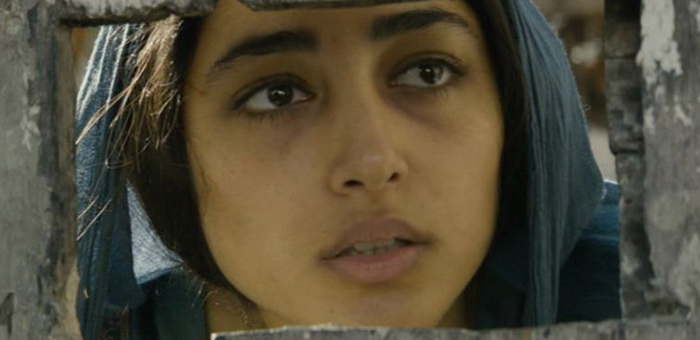Reviews
The Patience Stone | Review
Stone Faced: Rahimi’s Concept Bogged Down By Transparency
 As he did with his 2004 film, Earth and Ashes, Afghan filmmaker Atiq Rahimi adapts one of his own novels, The Patience Stone, for his latest feature. A situational drama inspired by a native fable concerning the titular stone, Rahimi proposes a ‘what if’ scenario that unfortunately gets repetitively tiresome, even if its locale grants it a certain compelling fervor. What if a Muslim woman could speak her mind truthfully without fear of consequence, relay her innermost thoughts and emotions to a catatonic spouse that’s kept her under the harsh thumb of his oppression for a decade? Whatever agency our lead protagonist is able to establish for herself, there’s an arid hue of hopelessness surrounding her specific situation, and its dubious streak of fortune makes this feel like science fiction.
As he did with his 2004 film, Earth and Ashes, Afghan filmmaker Atiq Rahimi adapts one of his own novels, The Patience Stone, for his latest feature. A situational drama inspired by a native fable concerning the titular stone, Rahimi proposes a ‘what if’ scenario that unfortunately gets repetitively tiresome, even if its locale grants it a certain compelling fervor. What if a Muslim woman could speak her mind truthfully without fear of consequence, relay her innermost thoughts and emotions to a catatonic spouse that’s kept her under the harsh thumb of his oppression for a decade? Whatever agency our lead protagonist is able to establish for herself, there’s an arid hue of hopelessness surrounding her specific situation, and its dubious streak of fortune makes this feel like science fiction.
In an unspecified Afghan city set during the country’s recent upheaval, one woman’s neighborhood (Golshifteh Farahani) becomes a battle front line. Already tasked with caring for her comatose husband (Hamid Djavadan), who lies incapacitated in their home due to a bullet wound in his neck lodged there three weeks prior, she shuttles off her child to stay with her aunt (Hassina Burgan), a prostitute that happens to be the only human able to empathize with her niece’s plight.
Staying in the war zone to care for her husband, we learn quickly that their marriage, not surprisingly, was hardly ideal. Slowly, the woman begins to gain confidence in her husband’s inability to respond as she voices aloud dark memories, painful emotions, and sexual desires. It’s not long before two soldiers accost her home, and one of them, a young and gentle orphan (Massi Mrowat) eventually engages in a highly charged affair with the woman.
A more effective film with similar intentions is the grotesquely perverse 2010 Koji Wakamatsu film, Caterpillar, or for a fluffy American counterpart, maybe Serious Moonlight (2009) with Meg Ryan. Whereas Wakamatsu understands how to effectively use metaphors, everything is made glaringly obvious in Rahimi’s film, with the main character’s aunt even blatantly explaining the significance of the said stone, only to have Farahani begin referring to her incapacitated spouse as such. Her crazed intention to keep him alive for her toothless therapy sessions after this epiphany slowly becomes more and more silly, and it’s only for the saving grace of Farahani, one of the most notable and prolific Iranian actresses currently working, that saves the film from becoming unintentionally comedic.
What we’re left with are an innumerable number of endless monologues, interrupted by the unevenly handled introduction of a stuttering soldier that, due to his own emasculation at the hands of another soldier, allows himself to enter a subservient and illicit sexual relationship with Farahani. The more she unloads on her patience stone, the more strength she gains, and thus, the privilege to a hopeful ending, albeit one that’s cloaked in one last act of defiance, which gives The Patience Stone its creepiest and most effective shot.
Reviewed on June 20th at the 2013 LA Film Festival – International Showcase.
























